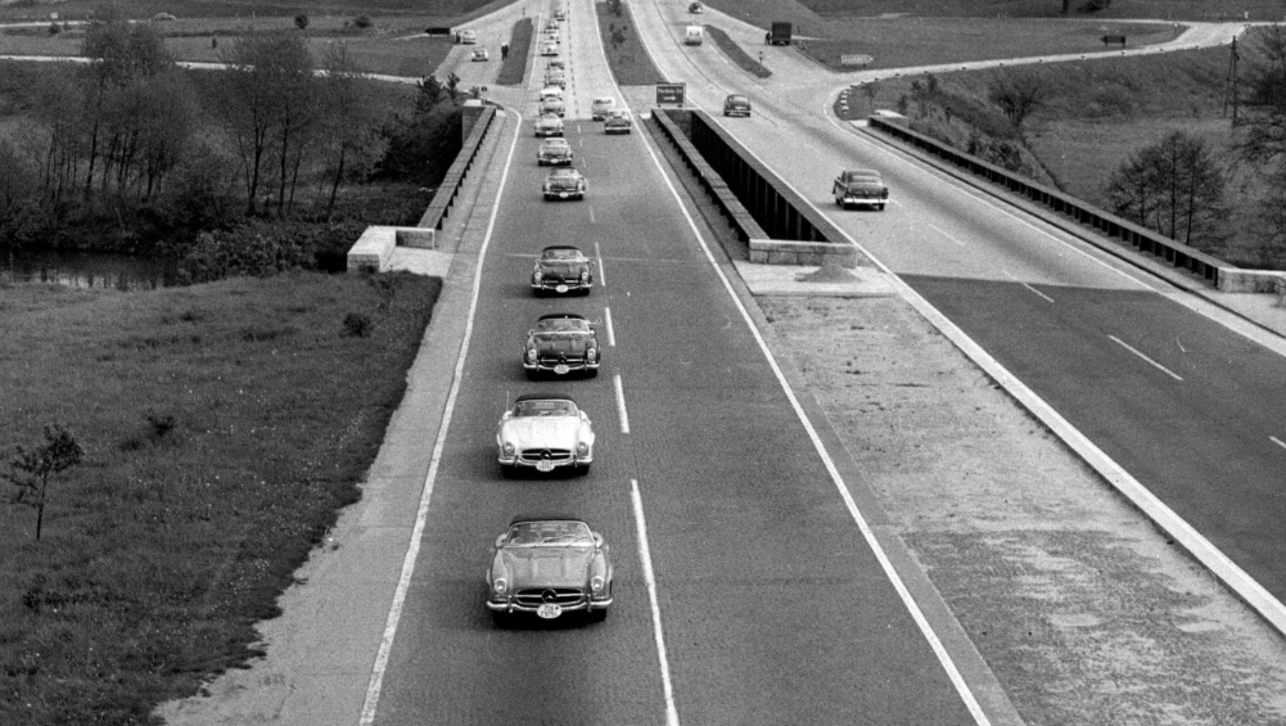If driving flat-out on one of Germany's autobahns is on your bucket list, you might want to start booking your flights. The famous speed-limit-free roads could soon be a thing of the past under new climate protection rules currently under consideration.
The changes, proposed by the country’s National Platform on the Future of Mobility, also include more expensive fuel taxes and mandated electric vehicle quotas to help Germany meet its EU emissions targets.
A paper sighted by news service Reuters carries the recommendation of a national 130km/h speed limit across Germany’s freeway network by 2023. At the moment, of course, parts of the German autobahn network have no speed limit, with travellers able to go as fast they’d like.
The paper says that, along with fuel tax increases, EV quotas and the end of diesel subsidies, the measures could produce half the emissions cuts required to meet Germany’s targets. The committee is yet to finalise its suggestions, with its findings due to be reported by the end of March.
If the decision is made to introduce a speed limit on German autobahns there will likely be significant backlash from the country’s car-loving citizens, something the paper’s authors are already trying to minimise.
“Not every instrument and every measure will be accepted,” the paper says. “It will take political deftness, diplomatic skill and a willingness to compromise to achieve the climate change goals.”
Have you driven on the autobahn? Tell us in the comments below.
![]()
Andrew Chesterton
Contributing Journalist
Andrew Chesterton should probably hate cars. From his hail-damaged Camira that looked like it had spent a hard life parked at the end of Tiger Woods' personal driving range, to the Nissan Pulsar Reebok that shook like it was possessed by a particularly mean-spirited demon every time he dared push past 40km/h, his personal car history isn't exactly littered with gold.
But that seemingly endless procession of rust-savaged hate machines taught him something even more important; that cars are more than a collection of nuts, bolts and petrol. They're your ticket to freedom, a way to unlock incredible experiences, rolling invitations to incredible adventures. They have soul.
And so, somehow, the car bug still bit. And it bit hard.
When "Chesto" started his journalism career with News Ltd's Sunday and Daily Telegraph newspapers, he covered just about everything, from business to real estate, courts to crime, before settling into state political reporting at NSW Parliament House.
But the automotive world's siren song soon sounded again, and he begged anyone who would listen for the opportunity to write about cars. Eventually they listened, and his career since has seen him filing car news, reviews and features for TopGear, Wheels, Motor and, of course, CarsGuide, as well as many, many others.
More than a decade later, and the car bug is yet to relinquish its toothy grip. And if you ask Chesto, he thinks it never will.
About Author




.jpg)

.jpg)









.jpg)

.jpg)

.jpg)
Comments